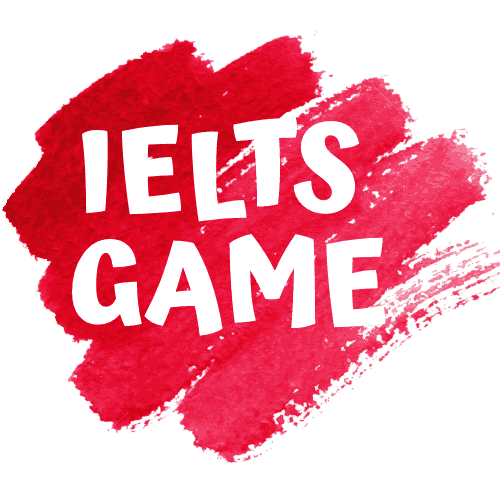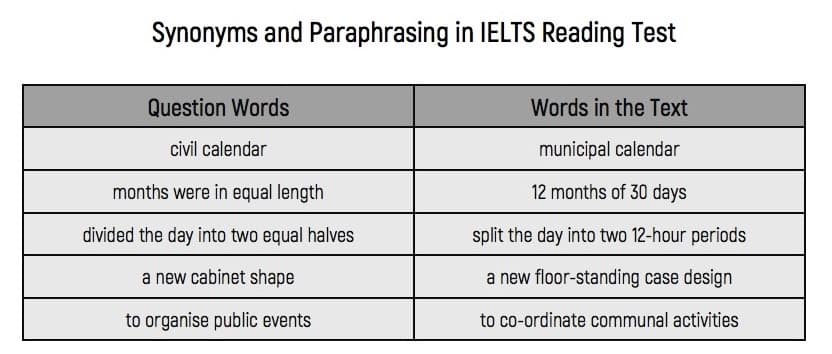IELTS Vocabulary: How to Learn New Words for IELTS?
Having an extensive vocabulary is one of the most important skills and techniques required to achieve a high score in IELTS.
Vocabulary is responsible for 25% of your score in the Writing and Speaking parts.
Having a wide range of vocabulary will also be useful when performing the Listening and Reading Tasks.
However, memorizing many words every day during the preparation period can be a challenge.
This article from IELTS Game will help you to deal with this aspect of the exam and will give you some useful tips on memorizing words for the successful completion of IELTS tasks.
Do not forget to like the page, share this article in social networks, and write comments since your opinion is very important for us! 🙂
Why is it necessary to learn a lot of new words for IELTS?
Having an extensive vocabulary will be useful for the Speaking and Writing parts.
The evaluation criteria for these parts of the exam include the Lexical Resource that will be used to evaluate how you speak, and what words you use.
In other words, your score directly depends on how extensive your vocabulary is.
a. Vocabulary In Speaking part
It is important to realize that you will not get a high score for Speaking if you speak plain language and continuously use the same words.
You must learn to take advantage of synonyms, and correctly use more complex vocabulary and idioms in your speech.
You may know and perfectly understand complex words if you hear or read them somewhere, but they never occur in your speech, and this is a problem.
It happens because these words and phrases are not a part of your “active” vocabulary, but of the “passive” one.
Therefore, your challenge in working with vocabulary is not only to memorize all the words, but also to transfer them to your active vocabulary.
This can only be achieved through regular practice and training.
b. Vocabulary is also one of the assessment criteria for the Writing part.
To perform the tasks of this section, you will not only need an extensive vocabulary, but also the ability to use synonyms and to paraphrase.
You will need these skills when you write an introduction for your essay or letter.
You’ll have to rewrite the question of the task, but it must be paraphrased.
- For example, you have got the following topic for an essay:
Modern children are suffering from the diseases that were once considered to be meant for adults only. Obesity is a significant disease prevalent among children. What are its causes and what solutions can be offered?
You can begin your essay in the following way by paraphrasing the assignment text and writing it in your own way:
Nowadays, the increasing rate of overweight children and adults is a worldwide health issue.
Obesity is a major problem which is increasing day by day in school going children. There are various reasons behind it.
This essay will discuss the causes of obesity and offer some solutions.
c. Reading & Listening Section
In the Reading and Listening parts, you will not need to use your vocabulary in the direct way, but having a wide vocabulary will certainly be of assistance in understanding texts for reading and audio for listening.
Moreover, knowledge of synonyms will help you answer the questions in these sections. Look at the table below:
The above table includes the words from the questions taken from the Reading part of the official IELTS test (on the left), and words from the text for reading (on the right).
In the example, you can see how many synonyms are used and, therefore, how many of them are required to answer the question.
All task options in the Reading and Listening parts of the IELTS test have an equal need for an extensive and diverse vocabulary.
In other words, if you do not have one, you will not be able to pass the Listening and Reading sections.
What you should not do when you are mastering vocabulary for IELTS?
The worst way to learn new words is to cram long lists of academic words, or just to read the dictionary. Why?
It is very simple: you will not learn words in context, that is, you will not know with which words this word is correctly combined, and what place it takes in the sentence.
As a result, you will know the word, but you will not be able to use it correctly.
It used to be popular among students to download a long list of words from the Internet and just learn the words on the list by heart.
This was perhaps the worst thing you could do to increase your vocabulary.
The result was always the same: when trying to use these words in a sentence, the students did it incorrectly.
The IELTS examiners will notice when a word is misused in the sentence and can reduce the score due to such errors.
It does not matter how smart and advanced your vocabulary is if you use it incorrectly.
You cannot expect anything good to come from the incorrect use of words.
As you can see, a simple “cramming” is not a valid method of mastering a large vocabulary.
To correctly use the vocabulary during the exam, it will not be enough just to cram the lists of words.
You also need to be able to accurately combine words with each other and use them in speech.
Therefore, I advise you to use the following methods:
1. Read a lot
Reading helps not only to learn new words but also to see those words that are already familiar to you in a different context.
That is, you will not only master new vocabulary but also become acquainted with other uses of words that you already know.
You can read practically everything that is written in English: articles on the Internet, menus, newspapers, books, advertisements, etc.
If you are preparing for the academic module, then it will be very useful you to read academic articles.
2. Learn about the meaning of unfamiliar words immediately
Develop a habit: as soon as you see or hear an unfamiliar word in English, immediately learn its translation and meaning.
For example, when you watch a program or a series in English and hear a new word, put the video on hold and check the word in the dictionary.
It is also a good idea to immediately write down the word and its meaning with examples of usage in a separate notebook.
After a while, you will have quite a few new words that you can work with.
“But how can we learn them all?” – you may ask. This is the next piece of advice.
3. Learn the words in context
The most effective way of remembering words is the context, i.e., you learn not one word in isolation, but together with the words that can surround it.
For example, you are watching a TED video and hear an unfamiliar word.
Just write it down into your notebook and look up the meaning in the dictionary.
Together with the translation of the word, write down an example of the use of this word that is given in the dictionary, or, even better, an example from the video itself.
Immediately try to think up your case of using this word: make a phrase or sentence with it.
This will help you to know with what words the word is combined, and when it can be used.
4. Do not forget about training
Another important element in memorizing new words is repetition. Do not forget to periodically repeat everything that you have learned before.
For example, make it a rule to repeat the learned vocabulary every morning or every evening before going to bed.
Such regular repetition will allow you to better master new words.
You can check our 14 days plan to master IELTS vocabulary as we mentioned the most important vocabulary with synonyms and examples.
Where to find new vocabulary?
Now you know how to learn new words, you need to figure out where to find exciting books, magazines, programs, etc.
Of course, you can find all necessary material in the shops of your hometown.
But why spend time for searching and money for buying all these books if they are all available on the Internet?
I strongly advise using the network resources to search for vocabulary.
Moreover, here you will have so much choice that you will undoubtedly find something that will be interesting to you.
To speed up your search, I suggest looking at a list of my favourite online publications that I use for reading and entertainment. Maybe you will find something of interest to you.
- National Geographic is a magazine about the surrounding world. Here you will find interesting articles about nature, travel, adventure, and scientific news.
- New Scientist – the title speaks for itself: here you will find the latest news and discussions from the field of science.
- The Economist – it is a news magazine, publishing events from the sphere of economy, politics, international relations, finance, etc.
- History Today – this British edition allows you to plunge into the history and look at some events from the other side.
- Time – (do not confuse it with The Times, although this is also an outstanding publication) – this American publication covers all the latest events in the USA and the world.
- Cosmopolitan – a magazine for girls about fashion and beauty industry.
- Wired – a magazine about computer technologies and their impact on the modern world.
You can also follow the current events by reading the news every day. The news releases always contain modern and useful vocabulary.
For example, you can use the BBC World News Channel, and you can take a look to our recommendation of the top 10 IELTS vocabulary books
What vocabulary will I need in IELTS?
It is almost impossible to guess which words you will need or come across in the examination.
Therefore, during your preparation, you may learn a lot of words that will not be useful in the exam.
However, do not think that you have wasted your time. If you decide to take IELTS, then you will need English for some future activities, e.g living or studying abroad.
It means that the learned words will be useful to you sooner or later.
Nevertheless, it is possible to identify certain “blocks” of words and expressions that should be given careful attention when preparing for the test.
Let’s look at these types of words:
1. Adjectives
Adjectives are not the most common part of speech, but they are often found in the exam.
One of the most popular IELTS tasks is to describe something, and we all know that we usually use adjectives for descriptions.
Using such simple adjectives as good, bad, nice, beautiful, big, interesting, etc., will not bring you a score higher than 5-5.5.
Therefore, be sure to learn the synonyms for the simplest adjectives, and do not forget to use them in speech.
2. Phrasal verbs
For many students who learn English phrasal verbs are probably the most complex phenomenon in English, but during the IELTS test, you will meet a large number of such words since they are now very common in the speech of native speakers.
Learn some of the most basic phrasal verbs; it will not reduce your score at the exam.
3. Idioms
Idioms are another indicator that you know the language at the highest level.
If you know a few idioms in English and know how to use them in your speech correctly, the examiner will assess this fact and give you a high score.
4. Thematic groups of words
There is a certain list of topics that is often found in the Writing and Speaking parts of the exam.
For example: environment, health, hobbies, climate change, technology, etc.
Therefore, it is worthwhile to learn the basic vocabulary related to these topics so that you could answer the questions in the IELTS tasks fully and correctly.
In our next articles related to Vocabulary for IELTS, we will be discussing these thematic groups of words, so do not forget to keep an eye on the updates.
The IELTS test does not have a separate task or part to test your vocabulary. This skill is tested throughout the exam, and it is important for each task.If you want a high score, it will not be enough to practice the Listening, Reading, Writing and Speaking tasks. Be sure to provide time for memorizing new words while preparing for the test.
Good luck!




3 Comments on “IELTS Vocabulary: How to Learn New Words for IELTS?”
what I need for ielts?
Thank you for your effort
Glad to help